Feature
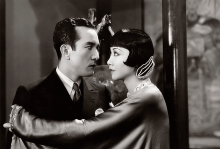
IN THE EARLY days of Hollywood, Japanese-born actor Sessue Hayakawa (1886-1973) was an icon. In the context of racist U.S. policy and increasing nativism in Hollywood, he was arguably the first non-Caucasian actor to gain international fame and the first person of Asian descent to become a leading man in the movie industry.
His overall career, however, is a story of race’s shadowy relationship with success. Orientalism, Yellow Peril, and America’s fear of Japan both helped and hurt his career. The Catholic Church’s eventual oversight of Hollywood also played a part in his troubles. The only way Hayakawa thrived in the industry was by playing into the structures of racism that set up his stardom.
“Such roles are not true ...”
IN 1915, WITH actress Fannie Ward, Hayakawa had the first on-screen interracial kiss.
Well before the Motion Picture Production Code outlawed interracial romance in 1930, the silent film The Cheat (1915) shows Edith Hardy (Ward) as a wife who takes money from the Red Cross, loses the $10,000, and then struggles to repay her debt. As she reels from the news of her loss in a semiconscious state, an acquaintance, Hishuru Tori (Hayakawa), assaults her and steals a kiss before she comes to her senses.
The silent film continues as Hardy describes her debt to Tori. Tori writes a check from his exorbitant wealth—he is described by title cards as a Japanese ivory trader—but not for free. He expects something from Ward.
When Hardy goes to repay Tori after her husband makes a hefty return on an investment, Tori locks the door and assaults her a second time. He brands Hardy with a circular seal; after she falls to the ground, the camera focuses on the stark black mark on her white shoulder.
The branding scene caused uproar in the Japanese American community. A Japanese newspaper in Los Angeles denounced Hayakawa, his sinister character, and the character’s appearance as a harmful stereotype. (Hayakawa reportedly had asked Cecil B. DeMille, the director of The Cheat, to change the clothing and mannerisms of his character, but DeMille disregarded him.) The backlash was enough for the film to be re-released in 1918 with Hayakawa’s character changed to a “Burmese king,” presumably because the studio believed Burmese people would have less volume to their voices of dissent.
“Such roles are not true to our Japanese nature ... They are false and give people a wrong idea of us,” said Hayakawa in 1916. “I wish to make a characterization which shall reveal us as we really are.”

THE WORLD HAS known since 2011 that at least 80 percent of all fossil fuels must stay in the ground to keep global temperatures below 2 degrees Celsius. This means that 90 percent of U.S. and Australian coal, and all Canadian tar sands, must stay in the ground. Yet in an August press conference, President Trump reacted to a question on global climate action by defending, at all costs, wealth creation from fossil fuels.
“I’ve made that [fossil fuel] wealth come alive,” Trump said. “We have more of it than anybody else. ... I’m not going to lose it on dreams, on windmills, which frankly aren’t working too well. ... We can’t let that wealth be taken away.”
That wealth, according to author and news anchor Chris Hayes, is valued at $10 trillion to $20 trillion. Hayes notes that $10 trillion in today’s economy is roughly equivalent to the wealth lost by U.S. slave holders as a result of abolition. Comparing the political economies of the slave trade and fossil fuels, Hayes suggests the movement against fossil fuel extraction ought to be called “the new abolitionism.”
Yet, with no global climate plan, the warnings from scientists have become more dire. Many now grapple with depression, while others undergo what’s been called “climate grief.” In 2015, global levels of carbon dioxide surpassed 400 parts per million, a trajectory that takes the world into global heating, ocean acidification, and species collapse. If governments and corporations won’t keep fossil fuel reserves in the ground, it’s clear that others will have to step in. Fortunately, some have.
Shut It Down
ON OCT. 11, 2016, five people orchestrated the largest coordinated shutdown of oil pipelines in U.S. history. With nothing more than bolt cutters, the “valve turners”—Michael Foster, Leonard Higgins, Emily Johnston, Annette Klapstein, and Ken Ward—used emergency shut-off valves to close five pipelines in North Dakota, Minnesota, Montana, and Washington carrying Canadian tar sands crude into the United States.
In an action that “shook the North American energy industry,” according to Reuters, the valve turners disrupted 2.8 million barrels of tar sands heavy crude for almost a day—equal to 15 percent of daily U.S. consumption. Before shutting the lines off, the valve turners notified the engineers responsible for monitoring them. The five waited until local sheriffs took them into custody. The valve turners and their support team were charged with 27 felonies and 15 misdemeanors.
“There’s [a climate] emergency, and we have been late to the scene,” Foster, one of the five, told Sojourners. “As much as we have to stop all these new [fossil fuel] projects, we actually have to shut down some of our existing consumption, our existing production, our existing transportation. If we don’t do that, then we could spend the next 30 years fighting every new project, and win, but we would still all be eliminated.”
For activists like Foster, keeping 80 percent of fossil fuels in the ground makes direct action a necessity. Others have taken similar steps: In 2015, Vanessa Gray shut off a pipeline carrying tar sands oil through her First Nation’s territory in Ontario. In 2017, Ruby Montoya and Jessica Reznicek in Iowa pierced Dakota Access pipeline valves with welding tools.
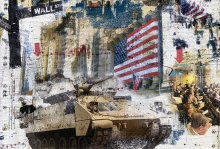
THE PROPHETS CAN only be understood if you understand that their context is an ideological “totalism” that intends to contain all thinkable, imaginable, doable social possibilities. That totalism always wants to monopolize imagination and technology so that there seem to be no serious alternatives.
In the ancient world of the Bible, that totalism is represented and embodied by the monarchy of Solomon in the Jerusalem temple. The king was surrounded by priests in the temple and by scribes who did the fine print to legitimate everything. And that totalism was completely intolerant of any alternative thinking.
We are able, in the Old Testament, to identify many of the features of Solomon’s totalism. First of all, it was an economy of extraction that regularly transferred wealth from subsistence farmers to the elite in Jerusalem, who lived off the surplus, and the device and strategy for that extraction was an exploitative tax system.
That totalism also needs a strong military. Solomon was an arms dealer. Partly, Solomon’s military was for show, and partly it was for intimidation. The totalism also had to exercise enormous economic opulence to impress people with wealth, so that Solomon’s temple is essentially an exhibit of Solomon’s much, much gold. The temple, and the priests who operated the temple, fashioned a series of purity laws to determine who the purer people and the impurer people were, to determine who had access and who was excluded from the goodies.
The three-chambered temple of King Solomon is a lot like a commercial airline. There was the outer court for women and gentiles. There was the inner court for guys in suits. And there was the holy of holies where only the high priests could go. And that’s a lot like the tourist cabin and the first-class cabin and the cockpit where only the high priests can go. Everything is delineated by rank, and therefore by opportunities that come with it. And this whole enterprise of extraction and exhibit and grandiose commoditization was all blessed by a very anemic God, whose only function was to bless the regime. So that under Solomon, you get a chosen king, a chosen city, and a chosen land, to the exclusion of all those who were not chosen.
What you can see in the biblical record is that this totalism was completely impatient with and intolerant of any alternative thinking. It was prepared to crush any alternative thinking, which was represented by the prophets.
What you get is the expulsion of the prophets, or the killing of the prophets, because they challenge the totalism that was legitimated by this anemic God.
Eruptions of Poetry
IN THE WAY the history of the Old Testament works, for 400 years you get a recital of the kings of the family of Solomon, and these are the point persons for the extraction system. But when you read along in First and Second Kings, what you see periodically are eruptions of poetry. These are the prophets who come from nowhere. They regularly unsettle the kings, and they come to occupy space in the historical recital. You can see first of all that those prophets are without a pedigree. They don’t have any credentials that legitimate what they want to say. Second, they come from nowhere. They are people who do not accept the truth of the totalism, and the way they articulate their coming from elsewhere is that they either say, “Thus says the Lord,” or they say “The word of the Lord came to me,” and “the Lord” becomes a kind of a signal that this is a word that will not fit or accommodate the totalism.
The prophets, moreover, were deeply grounded in the old covenantal traditions and the wisdom traditions, so they knew that there were structures and limits inherent to the way of creation that could not be violated with impunity. They have a very vigorous notion of the governance of God. But along with that sense of tradition, they have an acute sense of social reality.
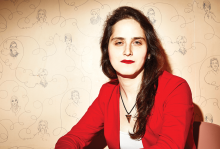
IT'S A WARM September morning, and roughly 20 women are gathered in a women-only coworking space in Brooklyn. After brief introductions, a poem honoring the first month of the Muslim calendar, and a hymn from the Church of Jesus Christ of Latter-day Saints (widely known as the Mormon church), Abby Stein speaks about the upcoming Jewish High Holy Days.
Stein grew up in a strict Orthodox Jewish community and was assigned to be male at birth. From a young age, she says, she knew she was a girl, but didn’t have the vocabulary to describe what she was feeling. Gender roles were so strict in her community that, according to Stein, the concept of being gay or transgender simply didn’t exist.
“Forget separate roles,” Stein tells me. “Men and women aren’t even supposed to interact.”
For several years beginning when she was 9, Stein prayed every night that God would make her a girl while she slept. She began questioning her belief in God: “How can I trust my parents and teachers about something as big as God and religion that touches our entire lives when they could be mistaken about something so existential as who I am?”
Stein got married, was ordained as a rabbi, and had a son. But by her early 20s, it wasn’t working. She watched YouTube to learn English (she’d previously spoken only Yiddish and Hebrew), studied for her GED, and eventually left the community. She came out as transgender while an undergraduate at Columbia University and is now an activist in both transgender and formerly Orthodox communities.
Stein has found a new home in several LGBTQ-inclusive Jewish spaces, but she finds them limiting. “All of these communities, even the ones as progressive as they are, they still follow a very set tradition,” she says. At the September gathering, Stein discusses the biblical story of Ruth and her mother-in-law, Naomi, who share a deep love that some consider romantic. “If you ask me,” says Stein, with a half-joking grin, “everyone in the Bible is queer.”
Things are different at Sacred Space, a multifaith gathering that meets on the first Sunday of every month. The gathering is both a refuge for women who have left their religious traditions and a seminar for those who still hope to change their faith communities from within. No one religion is playing host. Everyone is welcome to bring their own traditions; only sexism, racism, homophobia, and other forms of exclusion are off the table.
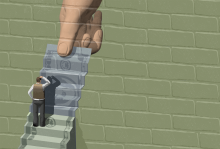
WHEN I TOLD my oldest son I was writing about universal basic income (UBI), he said, “All I know is that the Silicon Valley guys are pushing it, so it must be bad.” And he had a point. UBI has entered U.S. political debate most prominently as Silicon Valley’s favorite solution to a problem mostly of its own creation—massive permanent job loss due to artificial intelligence and robotics.
Under a universal basic income policy, all U.S. citizens would receive from the government a regular, permanent payment of, say, $1,000 per month, regardless of their other income or employment status. It wouldn’t get rid of the grotesque income inequality in the U.S. In fact, it wouldn’t even guarantee each person a decent standard of living. But it would get everyone up to the official poverty level.
Tech industry UBI proponents include Facebook CEO Mark Zuckerberg, Tesla founder Elon Musk, and Amazon kingpin Jeff Bezos. But the idea is most identified with former Silicon Valley entrepreneur Andrew Yang, who made it the defining issue of his long-shot campaign for the Democratic presidential nomination.
Still, UBI is an idea much older and bigger than any of its shadier supporters. While the term “universal basic income” is of fairly recent coinage, the idea that every human deserves some share of the earth’s bounty is an old one. In 1797, one of America’s founding philosophes, Thomas Paine, wrote that “the earth, in its natural uncultivated state was, and ever would have continued to be, the common property of the human race.” But, Paine continued, “the system of landed property ... has absorbed the property of all those whom it dispossessed, without providing, as ought to have been done, an indemnification for that loss.”
Paine proposed a single payment at the attainment of adulthood as compensation for the loss of our natural right to the earth. Paine was echoing the ideas of some of the earliest Christian teachers, including St. Ambrose (340-397 C.E.), who wrote: “God has ordered all things ... so that there should be food in common to all, and that the earth should be the common possession of all. Nature, therefore, has produced a common right for all, but greed has made it a right for a few.”
So universal basic income is not just the latest Silicon Valley fad. It’s rooted in an understanding of the origins of wealth and of our obligations to each other that is consistent with both our democratic and religious traditions.
But that still leaves plenty of room for debate about whether UBI is the right solution for America’s most pressing social and economic woes.
How Would UBI Work?
ECONOMIC DEBATE OVER the past 50 years has offered a variety of UBI-type proposals, from Richard Nixon’s negative income tax to the social wealth dividend proposed by some contemporary democratic socialists. The best-known and most-debated current UBI plan is the one proposed by the Yang campaign. This version of UBI rests on three pillars:
First, it is “universal.” Everyone gets it, without conditions—from Warren Buffett down to the apparently able-bodied guy with the “Please Help” sign at the exit ramp. That, of course, raises the first blizzard of objections. Why give money to rich people who don’t need it or purportedly irresponsible people who might waste it?
Paying for UBI would almost certainly involve new taxes on the wealthy, so Warren Buffett wouldn’t be keeping his $1,000 per month. As to the fear of aiding the “undeserving poor,” it’s true that historically most of the meager social benefits offered in the U.S. are means-tested (for those with the very lowest incomes) and conditional upon some form of good behavior (hours worked, clean drug tests, etc.). This has helped create a culture that stigmatizes public benefits as “welfare” and brands beneficiaries as, if not sinful, at least defective.
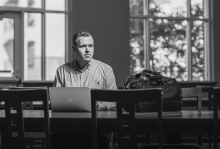
IN THE PAST two years, prominent pastors and church leaders—including Willow Creek’s Bill Hybels, the Village Church’s Matt Chandler, and Southwestern Baptist Theological Seminary’s Paige Patterson—have been accused of perpetrating or enabling abuse within their large institutions. By the time this story goes to print, another once-trusted person or institution will likely be proven to be corrupt, unreliable, and abusive.
While he was a youth pastor, Wade Mullen heard many of these hard stories from the teens and families he served. But when Mullen reported this abuse to his supervisor in accordance with state protocols, he was shocked when the church leadership dismissed it out of fear for what could happen to the institution. “Do you realize what reporting could do to that family? To this church?” asked a pastor. “These kids could take us all down with their storytelling.”
Despite this resistance from church leadership, Mullen reported the abuse to the appropriate civil authorities. After working for months to make clear why following reporting protocols was important for the safety of the vulnerable, he eventually resigned from the church.
The experience spurred Mullen to pursue a doctorate in organizational leadership, with a dissertation that examined how organizations respond to events that threaten their image. In his research, he told Sojourners, he “collected and analyzed nearly 300 media reports of American pastors of evangelical churches charged with a crime in the years 2016 and 2017.” Mullen, who now runs the M.Div. program at Lancaster Bible College’s graduate school, was profoundly affected. “I was stunned to discover that more than 200 were sex crimes, the vast majority of which were committed against children,” he said. “I was filled with grief and anger as I read descriptions of child sexual abuse, rape, child pornography, sex trafficking, and prostitution committed by those in positions of trust.”
In other words, Mullen became an expert on the very questions many of us have been asking lately: How do these systems end up enabling perpetrators while silencing victims? And—more importantly—how do so many of us let it happen, especially within the church?

"WE WILL MAKE you humble,” the superior in the Catholic order told me. I was 18 years old and had just joined a community of Catholic women religious.
We were eating dinner, and I was excitedly telling her and the other sisters what I had learned in theology class. A sister asked me, “Do you want to be a theologian?” Without hesitation, I answered “yes.” She shot a quizzical look at the superior, who said, “Being a theologian is likely to make you proud and arrogant. Don’t worry—we will make you humble.” She and the others smiled knowingly. Confused and hurt, I shut up.
Becoming a theologian was not something that I wanted to do for prestige. It was what I felt called to do; it was, and is, my vocation. As is usually the case in stories like this one, not all the sisters agreed with the superior’s comment.
Later that evening, one of the older sisters approached me as I was studying in the convent library. She put her hand on my shoulder and said, “Little sister, do you know what humility is?” Before I could reply, she said, “Humility is the truth.” Then she pointed at my books and notes. “The truth is that you love to study, question, think, and write. The truth is that these are the gifts God has given you. So be humble: Accept them and do something with them for the greater good.”
My life has taken me far from that convent library, but I’ve never forgotten her words because they freed me. After all, isn’t that what truth does? It sets us free. But free from what?
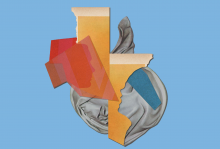
Vitoria thought it was strange when her church’s youth-group leader asked her if he could come to her house to talk about upcoming plans for the group. Vitoria, 18 at the time, had been active in First Baptist Church of Rio Doce in Olinda, Brazil. Recently, though, she had been attending youth services at a friend’s nearby church.
The youth-group leader arrived at Vitoria’s home and asked to use the bathroom. When he came out, she said, he held out his cell phone to show her something. “When he came in and was going to show me the plans, he reached around my back and tried to unclasp my bra,” Vitoria said.
Vitoria asked him what he was doing. Then, she said, he dragged her into her bedroom and raped her.
“Here in Brazil, the movement has gone in the opposite direction”
While Brazil’s Carnival celebrations are famous for their libidinous nature, less well known are the expectations that women in the country “stay in their place.”
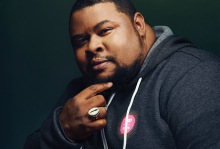
What is at the root of what one tastes? This is not an Alex Haley-like koan, but rather a historical and spiritual question.
Early in my career as a writer, I met Vertamae Smart-Grosvenor, author of Vibration Cooking or, The Travel Notes of a Geechee Girl. When she lived in Washington, D.C., we met on occasion at the local Safeway supermarket. Smart-Grosvenor was an American culinary anthropologist—and a food writer with a wonderful sense of humor.
Culinary historian Michael Twitty’s The Cooking Gene falls in the lineage of Smart-Grosvenor and maybe even the work of novelist and folklorist Zora Neale Hurston.
I first met Twitty years ago at Howard University in D.C. He was usually sitting in the main office of the African-American studies department in conversation with the secretary, Joyce Rose. One day I became aware of a change in his dress. Twitty may have been the only black person on Howard’s campus wearing a yarmulke.
Being black and Jewish is not new but remains intriguing. Howard is a place that prides itself on attracting a large number of students from Africa and the Caribbean. It upholds the tradition of advocating racial integration as well as the tenets of black nationalism. It’s an institution that can enhance one’s understanding of the various factors that define the black experience.

I HAVE WORKED WITH progressive Christians for a very long time, and I’ve noticed that too much talk about heaven seems to embarrass them.
Many people I’ve encountered have been eager to talk about the gospel of social justice but much less enthusiastic talking about eschatology. They seemed happy, for example, to talk about the feeding of the 5,000, but not so much about the Book of Revelation or the apocalypse.

“A BRILLIANT JEWEL in the black velvet sky.” That’s how lunar-module pilot Edwin “Buzz” Aldrin described the Earth in a 1998 interview, recalling how our planet looked from the vantage point of its natural satellite. Fifty years ago this summer—on July 20, 1969, during the Apollo 11 mission—Aldrin and Neil Armstrong became the first people to walk on the moon, a revolutionary moment for all humanity.
Another first transpired on that historic day, one that tends to be omitted from records or simply overlooked due to the complex relationship between religion and science. After landing on the moon’s Sea of Tranquility, Aldrin celebrated Communion, marking the momentous occasion with an act of thanksgiving after silently reading from scripture that he had written on a small card. “I am the vine, you are the branches,” he read. “Whoever remains in me, and I in him, will bear much fruit; for you can do nothing without me.”

WHEN WE ARE contained in the world that is immediately in front of us, we will inescapably end in despair. The inventory of despair-producers is well known: The failure of public institutions; the collapse of moral consensus; the failure of political nerve; growing economic inequity; and the pervasiveness of top-down violence against the vulnerable.
The good news of the gospel is that we need not be contained within that immediate world, and “hopers” refuse to be so contained: Now faith is the assurance of things hoped for, the conviction of things not seen (Hebrews 11:1
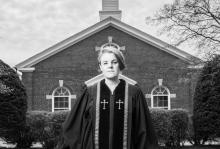
DURING REV. HEIDI Hankel’s interview for the lead pastor position at Philadelphia’s Bethesda Presbyterian Church, she learned that one of the church’s deacons was under investigation by law enforcement for allegedly sexually abusing a member of the youth group. Hankel was later offered the job.
No one would blame even the bravest of pastors for turning it down, but fortunately for that small Presbyterian church, Hankel is a reverend who likes to hop down in the trenches to be with her parishioners. She was afraid, she said, but also propelled by her faith to address the violence openly and holistically. She took the job.
“I didn’t know if they would fire me,” said Hankel. “But I felt at least I could stand before God one day and say I handled this well.”
Hankel had a simple answer for why it is so important for church leaders to loudly and actively work to prevent and address abuse: “God isn’t silent. And if God isn’t silent, we as his body—his hands and feet—should not be silent.”

WE LIVE IN AN AGE of “market morality”: In our market system, we believe that money grants value and meaning to the moral and social questions of life. It doesn’t. Nevertheless, we’re under its spell.
Market morality interprets life in economic terms. For instance, many corporations do not believe they have a moral duty to vulnerable communities affected by their business practices. Instead, they assert that their primary duty is their fiduciary responsibility to shareholders and other stakeholders in the company. In this case, the moral domain of corporate practice is about securing profit returns to the exclusion of broader social and communal practices of care.
We have witnessed, repeatedly, poor communities and their environments polluted by toxins associated with corporate practices. This is readily seen in the Flint, Mich. water crisis, which persists. These companies offer no apologies, because their moral obligations are defined in economic terms, shaped by the bottom line of profit.
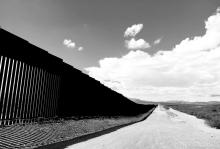
IN DOUGLAS, ARIZ., in the shadow of the U.S.-Mexico border wall, a cemetery stretches across the desert. Between the orderly rows of gravestones, I notice clusters of cement blocks lodged in the sand with the same word etched into their flat surfaces: Unidentified. “Unidentified Female,” “Unidentified Male,” carved into the center of the tablet, along with a date: “Found Aug. 9, 2004.” “Found Dec. 31, 2005.” “Found Jan. 18, 2009.” “Found Feb. 12, 2009.”
A Mennonite activist whispers over my shoulder, explaining that the date marks when the remains were found in the borderland wilderness—a corpse in decomposition, a skeleton bleached in the sun, perhaps only a skull or a set of teeth.

I WAS FILLING my coffee mug at a church lunch when I was greeted by a woman with a smile I couldn’t miss nor soon forget. Her short blond hair was pulled back under a red hat. She wore an oversized black T-shirt as a dress. A few lonely teeth protruded from her lower gums when she grinned.
Speaking fast, as though we might get cut off at any moment, she reminded me that we’d met when I’d first arrived in Berkeley, several years before. She asked if I would pray for her.
“Sorry if that’s presumptuous,” she apologized.
“Not at all,” I said. “I’m sorry, but would you remind me of your name?”
“Kim. And yours?”
“Ryan.”
“What’s your last name, Ryan?”
“Pemberton.”
“Oh, a very WASP name!”
“That’s not me,” I told her abruptly. “I’m no WASP.”
What began as a prayer request soon devolved into a debate about Jesus’ divinity. In the back and forth, Kim referred to me as a WASP several more times.
“That’s not me,” I corrected her each time. “We’re not all as we look, you know.”
Driving home, my mind was stuck on my frustration with Kim and, specifically, my rejection of the label “WASP.” I am white and of Anglo-Saxon descent—mostly English. I am Protestant, even. But WASP still carries connotations of wealth—especially inherited wealth—that do not fit me.
Yet for much of my life, I would have been reassured if someone thought I was a person of means and status. Why was it urgent to me now to reveal the very thing I had spent the past three decades hiding?
Living in shame
As the oldest child in a single-parent family in the far Pacific Northwest, in a small town where dairy cows outnumber people 10-to-1 and the lone, blinking stoplight is more of a luxury than a necessity, I did my best to hide our family’s poverty.
Just off the driveway was a shed where we stored our garbage. Trash collection was another expense. Maggots tumbled out from black plastic bags when I opened the door just wide enough to heave another trash bag atop the pile. We never spoke of it.
In elementary school, I waited anxiously in line for the woman who took money for “hot lunch”—Mrs. Price, aptly named. I faked surprise when she told me, in a voice loud enough for my classmates to hear, that I had already charged too many lunches.
“How long are we going to have to use food stamps?” I asked on a drive home from the grocery store one afternoon. The look I received assured me I would not ask this question again.
College for me, as it is for most people, was a revelation of my identity. I was preparing for a developmental psychology lecture when I read that Head Start is a school-readiness program for children from low-income families. I had always assumed everyone went to Head Start.
My face turned red. I turned the page quickly, hoping not to be found out.

FOR A GOOD SIX MONTHS, I didn’t notice the words carved above the grand sanctuary entrance to Mount Vernon Place United Methodist Church in Washington, D.C. The letters stand guard over the doors like sentries: Methodist Episcopal Church, South. The words meant nothing to me.
In February, the General Conference of the UMC voted to strengthen the enforcement of denomination rules against ordaining LGBTQ Christians and performing marriage ceremonies for LGBTQ couples. But Mount Vernon Place (MVP) has long described itself as “young and old, gay and straight, liberal and conservative, housed and unhoused, people filled with faith and people who know doubt.” It struck me as a place I could fit in and be challenged.
On my first visit, I was intrigued by a bulletin notice announcing the launch of a racial-justice book group—especially since the congregation is predominantly white. So I joined.
Book group leader Caroline Anderson-Gray, white and in her 30s, has been a member at MVP for four years. I asked her why she started MVP’s racial justice conversation with a book group.
“In the summer of 2016, as reports of police officers killing black citizens seemed to be at the top of the news every other day, our minister raised the idea of a racial-justice reading group,” said Anderson-Gray. “I believe that to be Christian is to be committed to dismantling structures of hatred and inequality, so a reading group on the subject of racial justice at church made a lot of sense to me. By the time we had our first meeting, the presidential election had occurred, and the need for such a group was more urgent than ever.”
A book group may not seem like much given the rise of social terror. But small discipleship groups are a very Methodist practice—and this one opened a space for transformative conversations. Eight to 12 people, a microcosm of the church, gathered every other month to read and learn. One man, a Canadian expatriate, spoke about his difficulty in understanding his new country considering the experiences of his African-American husband. Una Song, an MVP member for three years, said that reading Patricia Raybon’s My First White Friend helped Song clarify her own experiences of exclusion in a country dominated by white privilege.

THE WEEK OF JESUS’ resurrection is his first week home from prison after a very public arrest, trial, imprisonment, and death sentence. Jesus’ closest friends do not recognize him; they are frightened and mistake Jesus for everything from a ghost (Luke 24:37) to a thieving gardener (John 20:15).
Biblical interpreters have spent thousands of years trying to make sense of why the seemingly joyful event of Jesus’ resurrection is haunted by unrecognition. Many have presumed that Jesus rises from the grave with a body that is somehow different—flesh that bears the marks of the execution but has somehow been transformed. If Jesus has come back with a changed body, the argument goes, then the fear and lack of recognition that his disciples show toward him make sense.
Perhaps. But after many years of friendship with people who have been locked up and released, I have come to see that the stories of Jesus in the wake of his resurrection look startlingly like the experiences of every other formerly incarcerated person in the wake of his or her release. Miraculous bodies and transfigured flesh are not needed to explain the fear and awkward renegotiation of relationships that pervade the Easter stories: Jesus is home from prison, and his church simply doesn’t know what to do with him.

TO MOST WHITE AMERICANS living today, racism has—until recently—managed to keep itself somewhat hidden. For decades, white people perpetuated the myth of an unbiased meritocracy, lauded laws that officially criminalized segregation and discrimination, embraced a token form of multiculturalism, and accepted a tincture of color in their overwhelmingly white world of power.
When Martin Luther King Jr. was assassinated, the United States tipped but didn’t topple. Klan Wizard David Duke ran for national office several times but never won. Two generations after the Civil Rights Act of 1964, the country elected a black president. For 40 years, if you believed you were white, you could act as though the lie of skin superiority was largely a relic of the past.
Racism and white supremacy sold the same lie the devil wants told about all manner of evil: Look at the light; there is nothing in the shadows. All is well, move along.
We know the sentiment better, perhaps, from the 1995 film The Usual Suspects, in which it is said, “The greatest trick the devil ever pulled was convincing the world he didn’t exist.” The poet Charles Baudelaire, however, first came to this idea in his prose poem “The Generous Gambler.” The narrator of the 1864 poem spins a tale of an evening spent with the devil. They drink and gamble, the devil wins, and the narrator loses his soul. The night ends with the narrator alone in his bed, begging God for mercy.
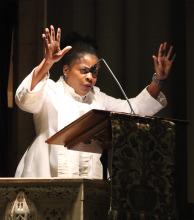
UNITED METHODIST BISHOP Cynthia Moore-Koikoi has fond memories of growing up in the church. It helped form and develop her as a leader, she said. But her involvement with church administration and leadership came with a price, as she described in a panel at the Religion News Association conference in 2018. As a youth delegate to her annual convention, Moore-Koikoi recalled that whenever she walked by a certain group of clergy, “they were going to make comments about my physical appearance ... I learned how to turn my face quickly when that ‘holy kiss’ was given so that it would land on my cheek not on my lips. It was like I was walking a gauntlet at times.”
In 2016, Moore-Koikoi was consecrated as a bishop and called to serve United Methodists in western Pennsylvania. Certainly, she thought, serving in such a high church position and marriage would protect her from sexual comments and predation. But, says Moore-Koikoi, “no level of power or authority in the church can insulate persons from sexual harassment.” Sojourners’ senior associate editor Rose Marie Berger interviewed Moore-Koikoi by phone in December 2018.
Sojourners: In 2016 you were elected bishop. Have you experienced any sexualized pressure, harassment, or assault since your ordination as a bishop?
Bishop Cynthia Moore-Koikoi: Yes. There was an incident that happened not long after I was ordained a bishop that I characterize as sexual harassment. Unfortunately, it happened at one of the earliest meetings that I went to as a bishop with the Council of Bishops. An individual there made some inappropriate comments about me, about my physical appearance and about his desires. It was a very uncomfortable situation, [my] being a new bishop, not knowing how bishops conduct themselves at those kinds of things.